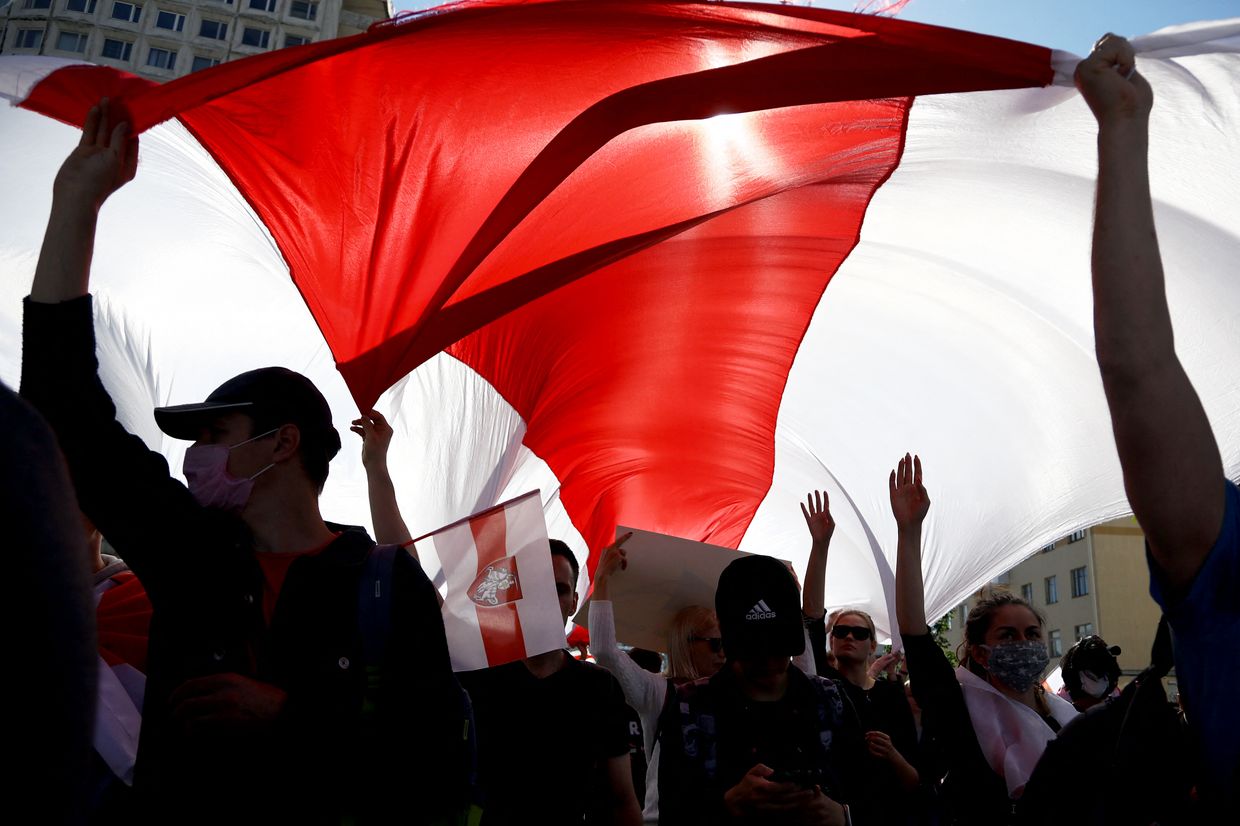Lithuania to require 18,000 Belarusians to indicate view on Russian invasion of Ukraine

Lithuania plans to screen 18,000 Belarusians who came to the country before 2022 and require them to fill out a questionnaire that asks, among other questions, their view on the Russian invasion of Ukraine, Migration Department Director Evelina Gudzinskaite told Lithuanian news agency ELTA on Feb. 27.
The questionnaire has been required since November 2022 for all Russians and Belarusians moving to Lithuania.
Lithuania's population of 2.8 million includes 224,800 foreigners, including 62,500 Belarusians.
Thousands of Belarusians fled to Lithuania after Alexander Lukashenko's regime cracked down on pro-democracy protesters following the 2020 presidential elections, which were widely condemned as fraudulent. Vilnius is a 2.5-hour drive from Minsk, making it the closest European capital for many in Belarus.
The answers of the 18,000 Belarusians who have not yet filled out the questionnaire will be assessed, and if "negative information" is found, the State Security Department will be consulted for a further decision, Gudzinskaite said.
If the State Security Department "concludes that the person is a threat to state security, the residence permit will be revoked."
"If a person does not answer the questionnaire, it will be interpreted against them," Gudzinskaite said.
According to New Eastern Europe, the questionnaire is not publicly available, but asks respondents to indicate who they believe Crimea belongs to, among other questions.
As a result of answers in the questionnaire, so far 1,644 Belarusians and 397 Russians were deemed to pose a threat to Lithuania’s national security, Baltic news site Delfi reported.
From March, only two border crossings between Lithuania and Belarus will be operational, after Vilnius announced on Feb. 21 that two checkpoints will be closed. Lithuania previously shut down two of its six border crossings in August 2023.
"This decision was also determined by the risks associated with the increased activities of the Belarusian intelligence and security services against Lithuania and our citizens," Interior Minister Agne Bilotaite said.












